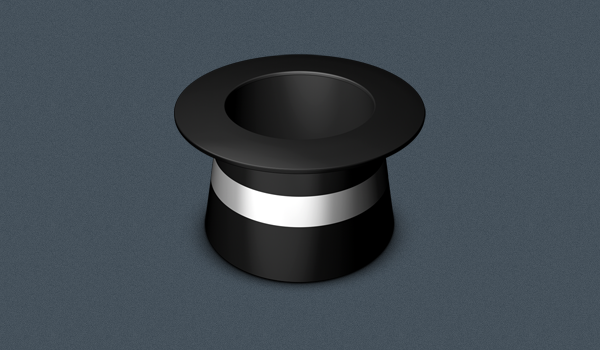The 20th century was a time of incredible technical advance, world war, and hundreds of influential news stories. Here is a list of the 10 most talked about and influential stories of the 20th century. You can check out the complete list of 30 at https://www.listzblog.com/top_ten_world_changing_stories_of_20th_century_list.html
The 20th century was a time of incredible technical advance, world war, and hundreds of influential news stories. Here is a list of the 10 most talked about... more

1
The Atomic Age Begins (1945): There is little doubt that the most influential and important story of the 20th century is the nuclear bombings of the Japanese cities Hiroshima and Nagasaki. At 9:15 a.m. on Aug. 6, 1945, a U.S. bomber dropped a nuclear bomb on the Japanese city of Hiroshima. Hiroshima was instantly destroyed and fires engulfed the city. The bomb instantly killed 60,000 people with relatively few of them being soldiers. Three days later another nuclear bomb was dropped on Nagasaki, combined the bombs killed as many as 140,000 people in Hiroshima and 80,000 in Nagasaki by the end of 1945.
2
Man on the Moon (1969): The United States Apollo 11 mission was the first crewed spaceflight to land on the moon. It launched on July 16, 1969 and on July 20 astronauts Neil Armstrong and Buzz Aldrin became the first people to walk on the moon. The mission fulfilled U.S. President John F. Kennedy's goal of reaching the moon by the end of the 1960s, which he had expressed during a speech given on May 25, 1961. Armstrong's first words after he set foot on Earth's only natural satellite was "that's one small step for man, one giant leap for mankind." In the following years a series of U.S. manned missions reached the moon, although many claim the moon landing is shrouded with mystery.
3
Japan Bombs Pearl Harbor (1941): On December 7, 1941, Japanese planes bombed the United States Pacific Fleet at Pearl Harbor in Hawaii. The attack consisted of two aerial waves totaling 353 aircraft, launched from six Japanese aircraft carriers. The attack sank four U.S. Navy battleships and damaged four more. The Japanese also sank or damaged three cruisers, three destroyers, destroyed 188 aircraft, and caused personnel losses of 2,402 killed and 1,282 wounded. It was some of the biggest news of WWII and instantly flashed across the world via radio.
4
The First Human Flight (1903): The Wright brothers are two Americans credited with inventing and building the world's first successful airplane and making the first controlled, powered and sustained heavier than air human flight. On December 17, 1903, Orville Wright flew a 750-pound aircraft, powered by a gasoline engine across the sand hills of Kitty Hawk, N.C. He traveled 120 feet. Orville’s brother Wilbur would later stay aloft for 59 seconds. It was the first time a powered machine left the ground. Today, air travel has become a common and essential aspect of society.
5
Penicillin Discovered (1928): Penicillin is a group of antibiotics derived from Penicillium fungi. Penicillin antibiotics are historically significant because they are the first drugs that were effective against many previously serious diseases such as syphilis and Staphylococcus infections. In 1928, Sir Alexander Fleming discovered the drug, which counteracted harmful bacteria. Fleming made the discovery by accident when he contaminated a bacteria culture with a "Penicillium notatum" mold. He noticed that the non-toxic mold halted the bacteria's growth, and later conducted experiments to show penicillin's effectiveness in combating a wide spectrum of harmful bacteria.
6
JFK Assassinated (1963): The most influential and shocking assassination of the 20th century was John F Kennedy. On Nov. 22, 1963, President Kennedy was shot dead in Dallas, Texas. World news and television covered the events surrounding the assassination and the president's funeral nonstop for weeks. The man accused of the assassination, Lee Harvey Oswald, was shot dead Nov. 24, 1963, on national TV. Kennedy’s death greatly influenced U.S. national and foreign policies.
7
Women's Suffrage in the U.S. (1920): In 1920, The 19th Amendment to the United States Constitution was ratified. It prohibited discrimination in voting based on sex. One hundred and forty-four years after the birth of the republic, American women were given the right to vote. It was a giant step in the women’s civil rights movement of the 20th century.
8
New Polio Vaccine Works (1953): Polio is an acute viral infectious disease that spreads from person to person, primarily via the fecal-oral route. It was one of the most dreaded childhood diseases of the 20th century. Each year thousands of children suffered from polio. In many cases, the disease left the children paralyzed and condemned some to life with an iron lung. It even affected U.S. president Franklin D. Roosevelt. On March 27, 1953, a University of Pittsburgh team discovered a vaccine that effectively combated the disease. The vaccine has eradicated polio from most countries in the world.
9
DNA Discovered (1953): In 1953, biologists James Watson and Francis Crick discovered that DNA is a "double helix polymer” that looks like a twisted rope-ladder. They found that DNA is a nucleic acid that contains the genetic instructions used in the development and functioning of all known living organisms. The discovery demonstrated that DNA is the most basic genetic material and led to new medical technologies and ethical controversies over genetic engineering. It has also created forensic science and criminal technology advances.
10
Nazi Holocaust Exposed to the World (1945): As American soldiers liberated the Buchenwald concentration camp in Germany, they encounterd survivors who looked like walking skeletons. Most prisoners had lost at least 40% of their body weight. Soldiers began to report the atrocities committed by the Nazis, particularly against Jews at Buchenwald and other camps liberated by Allied troops. An estimated 6 million Jews died in the Nazi Holocaust.
Not watching this list (get updates on this list).
(all people watching this list)
MORE LISTS


RECOMMENDED LISTS


COMMENTS







 ).
).

